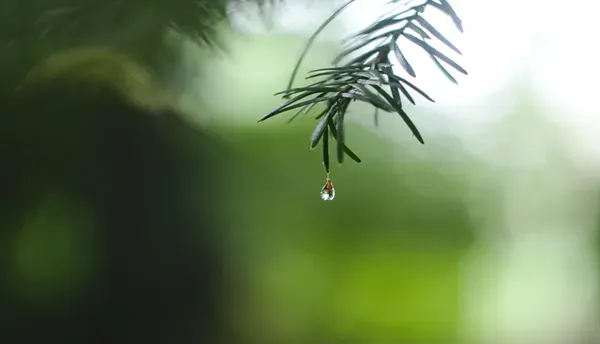Water Conservation Techniques in Permaculture Farming
Antony Thilak W |
31 December, 2023 |

Introduction
In a world grappling with the challenges of water scarcity and environmental degradation, permaculture farming emerges as a beacon of sustainability and efficiency. This blog post delves into the various water conservation techniques inherent in permaculture, highlighting how they can be applied to enhance the sustainability of farms, particularly in regions like Bangalore, where water management is crucial for agricultural success.
The Essence of Water in Permaculture
Permaculture, a sustainable approach to agriculture, places a significant emphasis on the wise use and conservation of water. It recognizes water as a precious resource and devises strategies to use it efficiently while ensuring its replenishment in the natural ecosystem.
Water Conservation: A Permaculture Priority
In permaculture, water conservation is not just a practice but a principle. It involves a holistic approach that starts from the design phase of a farming project and integrates various techniques to minimize water usage and maximize its productivity.
Key Water Conservation Techniques in Permaculture
Rainwater Harvesting: Capturing and storing rainwater for later use is a fundamental permaculture technique. This can be achieved through simple setups like rain barrels or more complex systems like pond creation and swales.
Drip Irrigation: Drip irrigation delivers water directly to the plant roots, reducing evaporation and runoff. It's an efficient way to use water, ensuring that each drop is utilized optimally.
Mulching: Applying a layer of organic material on the soil surface helps retain moisture, reduces water evaporation, and keeps the soil cool, thereby reducing the need for frequent watering.
Swales and Contour Planting: Swales are shallow trenches built along the contour of the land. They capture and slowly release rainwater, allowing it to percolate into the soil, recharging groundwater and hydrating the landscape.
Choosing Drought-Resistant Crops: Selecting crops that are naturally more resilient to dry conditions can significantly reduce water demand on a farm.
Greywater Systems: Reusing greywater (from sinks, showers, etc.) for irrigation is an excellent way to conserve water. Simple filtration systems can make greywater suitable for agricultural use.
Application in Managed Farmland Near Bangalore
In areas like Bangalore, where water scarcity is a growing concern, applying these permaculture water conservation techniques can transform managed farmlands into models of sustainable agriculture. Efficient water use not only ensures the viability of the farm but also contributes to the broader goal of water conservation in the region.
Permaculture and Real Estate: Water-wise Farm Houses for Sale in Bangalore
The real estate sector in Bangalore is increasingly aware of the importance of water conservation. Farm houses that incorporate permaculture water conservation techniques are not only more sustainable but also more attractive to environmentally conscious buyers. These properties offer a sustainable way of living, aligning with the increasing demand for eco-friendly homes.
Global Relevance and Local Impact
The principles and techniques of water conservation in permaculture farming are globally relevant, especially in regions facing water scarcity. By adopting these practices, farms can become more resilient to climate change and contribute to the overall sustainability of the agricultural sector.
Conclusion
Water conservation techniques in permaculture farming represent a critical component of sustainable agriculture. They offer practical solutions to one of the most pressing environmental challenges – water scarcity. As we move towards a more sustainable future, the integration of these techniques in both rural and urban farming practices, especially in water-stressed areas like Bangalore, will play a pivotal role in ensuring food security, ecological balance, and the well-being of communities.
